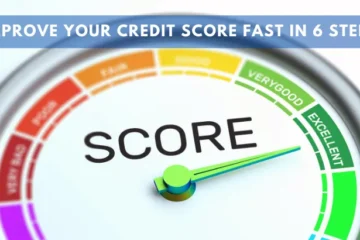Credit cards make shopping much easier than when credit cards were not on trend. However, credit cards can be one of the reasons individuals see themselves in so much debt, making it hard for them to keep up. It sometimes gets bad that they need to repair credit. If you are a first-time credit card holder, you must know how to handle a credit card. Credit cards can be a temptation to spend more, but it can also be convenient if you know how to be a responsible cardholder.
How to handle a credit card?
1. Keep your personal information confidential.
Personal information such as your card, which contains your card number, CVV, personal identification number (PIN), and online passwords, should be kept private. Your credit card information should be off-limits, even if it is your closest friend or family member.
If your information is shared and someone uses your credit card to purchase, your credit card issuer will not refund you; in some cases, they would, but only if you’re not at fault. If this happens, your credit score will be affected, and you will be forced to pay the balance you didn’t even spend.
Have all your information to yourself only.
2. Make It a habit to pay the full balance each month.
Paying your full balance will save you more money later than just the minimum. Paying in full can save you from interest, and this interest will increase the cost of everything you buy with a credit card.
Not only will it boost your credit card, but also it will show lenders that you are a responsible borrower. Also, it can show that you can manage to pay off debts which can increase your credit limit.
3. Avoid minimum payments.
If you can’t afford to pay your balance in full, you can pay the minimum each month so you won’t have to risk your credit card being canceled by the issuer.
However, there are many downsides if you keep paying just the minimum each month. It can accumulate more interest, and it will be hard to keep up with your balance if you delay paying your full compensation. You could be paying more interest than the original debt.
4. Avoid late payments.
Late payments can cause doubts to your card issuer and increase your interest, or worse, they can close your account. In other cases, it can cause distrust in lenders. Late payments can also damage your credit score, and a low credit score can decrease your chances of getting other loans.
You can avoid late payments by setting up auto-payments from your credit cards before or on the day your payment is due. In that case, you won’t be bothered paying personally anymore. Just remember to check your online to make sure it is being delivered.
5. Check credit card statements
Check for any errors. Any false information on your credit score. There are instances when your latest payments are not up to date, which will be marked as late or missed, so you have to be careful when checking information on your card statements.
6. Do not max out your credit card limit.
As much as possible, use only 30% of your credit card. Maxing out your credit card can affect your credit score. Not only that, but it will bring you a large amount of debt, and keeping up with debt is challenging.
If you control and stay way below your credit limit, it can lower your debt-to-income ratio and make applying for other loans much easier.
If things go bad and you get overwhelmed by debt, it can affect your credit score, and things will add up, and you’ll see yourself getting drowned in debt.
“Where can I fix my credit?” is the question many of us ask. If you do your research, you’ll find credit repair companies that can help you. But even if you have various options for credit repair, you must prevent this from happening.
Conclusion
If you follow these practices with the help of our credit agent, you can prevent credit repair from happening and maintain a healthy credit score from the beginning.
Watch out for signs that you are overspending. This may include:
1. Credit card balance keeps growing.
2. Maxing out credit limit
3. You carry a credit card balance from month to month
4. You only pay minimum
5. Take out a cash advance with your credit card.
If you see yourself in this situation, do a financial budgeting. See where you can cut costs and avoid using your credit card. Only open a new account if you reach the credit limit; that will drown you more in debt.
Make it a habit to strictly follow your financial budgeting. This is one of the easiest ways to be a responsible credit card holder.
The best credit repair agency is around the corner if you need help. Shoot Credit Repair Now a message, and we’ll do everything to satisfy your credit repair needs.




